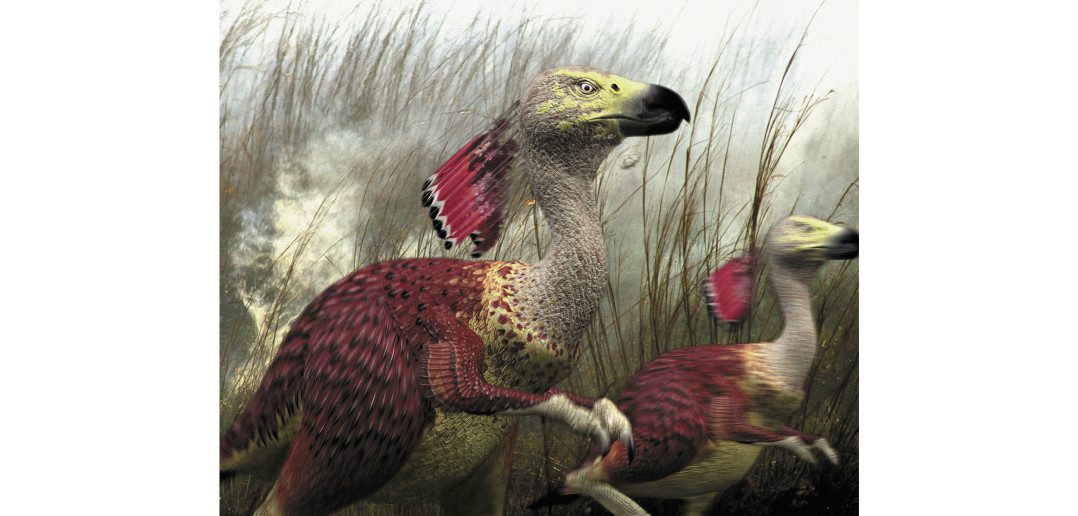Not all IP is suitable for brand extension, but we realised from the start that The Future is Wild (FIW) — a speculative evolutionary concept that imagines the world in 200 million years time — had what it takes to be exploited across multiple commercial activities.
This is how we did it. Imagine a wheel. Within the circumference is a pie chart, each segment representing a potential area of exploitation: TV, big screen, publishing, games, merchandise, visitor attractions, education. It doesn’t matter where you enter the wheel with your IP — only that your initial exploitation is sufficiently high profile to drive success in the other segments. As the wheel turns and you fill in segments, success in one “pie” inspires success in the others, encouraging not only cross-marketing, but allowing you to replace or refresh those ideas that are flagging in one area without losing overall brand traction.
FIW launched in 1996 at MIPTV and the Frankfurt Book Fair. This year sees us back at both events with pioneering new content — including an original adventure series to be produced by Shrek producer John H Williams — that we hope will take us through the next 20 years.
That at least is the plan. But if we’ve learned anything from the last 20 years, it’s that setbacks, failures and, frankly, mistakes are an inevitable part of any complex brand strategy. Things can and do go wrong, but here are few damage-limitation lessons that we’ve learned during the course of FIW’s own evolution.
Lesson one: Do your own research. You know your show works for television, but could it work as a game, toy or t-shirt? You won’t know until you ask. A day at a shopping mall is the best way to find out about retail trends. Ask sales staff and chat to parents. Then go to trade shows and talk to industry professionals. When as a publisher I needed to find out about television, I flew to a video trade event Las Vegas with two wheelie cases of books. I worked the halls, identified market gaps and met key players. As an immersion course, it was invaluable.
Lesson two: You know your own IP best. If you can do the job, do it yourself. After Las Vegas, our books became kids’ videos and, nine months later, we were pre-selling them from our first stand at MIPTV. Within four years, we went from an IP-owning publishing company to an audiovisual producer and distributor with a hit property on our hands. We had 115 licences for a doc series based on books that had by then been published in virtually every language. Nobody else could have done this for us.
Lesson three: Don’t mistake enthusiasm for a commitment. This industry craves the new and the innovative, so any fresh and original concept is likely to be met with flattering excitement. But will people put their money and reputations on the line for your concept? In the early days of FIW, a couple of promising deals stagnated for no clear reason. On two occasions we travelled to the US at great expense to present FIW to multinational toy companies. Everybody was excited but neither company signed. Nearly 20 years later, I realise we were wrong, not them. Our brand at that point was based on expectation, not proven results.
Lesson four: Expect to lose. Developing a new concept is eye-wateringly expensive. FIW went through four years, four promos and four writing teams before production started. The cost was in excess of $1m, which had to be written off. FIW’s eventual success for the likes of Animal Planet US, Discovery, ZDF and NHK indicated that our investment would ultimately pay dividends, but it was hard, risky and daunting — particularly when taking the brand into sectors outside our comfort zone and experience. I’ve personally made a fortune, lost a fortune and I am slowly building one back. Expect to do the same.
Lesson five: Relationships, relationships, relationships. In the story of a brand like FIW, there will be champagne moments and terrible moments that shake your confidence — personally and professionally — to the core. The great moments are for sharing with your friends and colleagues. So, too, are the terrible ones. This is the real secret behind making something like FIW work. Only work with people you trust and like. The great moments are for sharing with your friends and colleagues. So, too, are the terrible ones.
Find out more at MIPDoc’s Future is Wild case study, April 3. Full details here!




